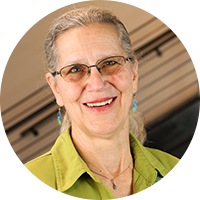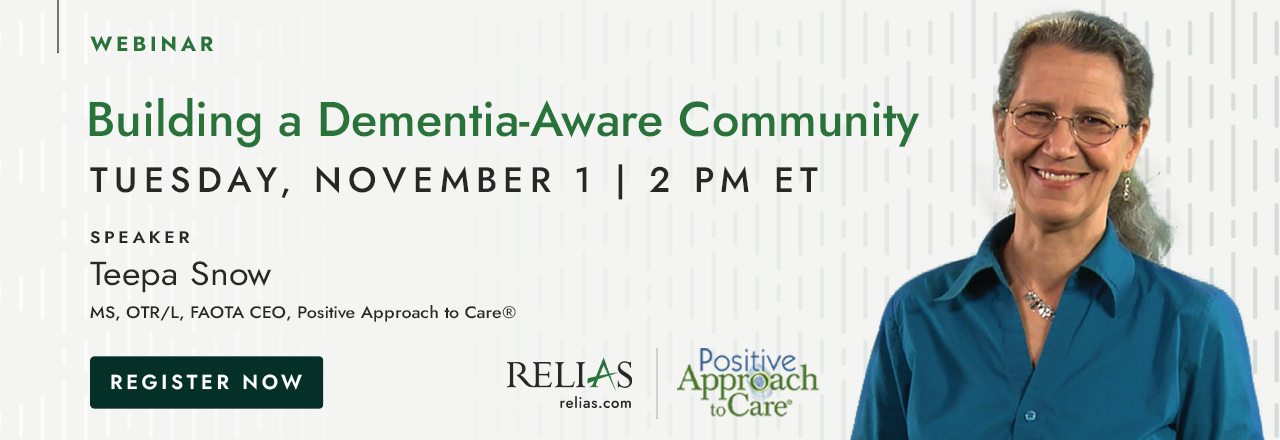Communities across the country are taking action to become dementia friendly by leveraging resources and partners across community sectors. Each part of the community has a unique role to play in contributing toward dementia friendliness including business, community-based services, and supports, faith communities, health care, legal and financial services, local government, and residential settings.
About 60 percent of people with Alzheimer’s and other dementias live in the community, with an estimated one-‐quarter of them living alone. Most can remain active in the community – and, with appropriate support,
they will have better outcomes and quality of life at lower costs than if they are institutionalized and isolated.
Unfortunately, many people do not know how to interact effectively with those living with Alzheimer’s and other dementias – or what small changes in their daily practices can help people with dementia remain independent and engaged. To address these challenges, “Dementia-‐Friendly Communities” is an emerging movement in which the goal is for people with dementia and their caregivers to receive better community support and to have greater opportunities to stay actively engaged and remain at home as long as possible.
What does it mean to be a dementia-friendly community?
A dementia-friendly community is a city, town, or village where people with dementia are understood, respected, and supported. In a dementia-friendly community, people will be aware of and understand dementia, so that people with dementia can continue to live in the way they want to and in the community they choose.

- Examples of Age-Friendly and Dementia Friendly Community Characteristics
- Dementia-friendly community initiatives: An integrative review
- Dementia Friendly Community – Fact Sheet
- Dementia Friendly Tool Kit
Raise awareness
People in your community need to understand dementia before they can take dementia-friendly actions. There are lots of ways you can raise awareness, such as:
Involve people affected by dementia
Before you can start taking action, you’ll need to hear the experiences of people affected by dementia where you live. You could do this by:
- Inviting people with dementia to join your group
- Visiting services, such as Memory Cafés
- Hosting a community event
Tell the world
You’re doing something amazing, so make sure your community knows about it. It’s a great way to get more people on board and celebrate your successes.
You could consider:
- Sharing news on social media
- Writing a press release for your local newspaper
- Taking part in community events and fayres
Identify areas for local action
Taking action is the most important part of any dementia-friendly community. You don’t have to tackle everything at once. Speaking to local people with dementia can help you identify what your priorities should be.
We suggest using the BSI PAS1365: A code of practice for dementia-friendly communities to help you. This guide offers eight key areas for action and some suggested actions for communities:
- arts, culture, leisure, and recreation
- businesses and shops
- children, young people, and students
- community, voluntary, faith groups, and organizations
- emergency services
- health and social care
- housing
- transport
See sector-specific guides to find out how you can become a dementia-friendly organization
With the increased awareness of dementia, it’s vital for your entire healthcare workforce to understand the condition and how to emphasize empathetic interactions. Specialized training can empower your workforce to understand the differences between “normal” and “abnormal” aging and understand when to employ additional techniques.
Relias is pleased to host our latest thought-leadership webinar, Building a Dementia-Aware Community, featuring renowned dementia care expert, Teepa Snow. During this one-hour session, Teepa will offer insight into identifying common types of dementia and discuss verbal and physical techniques your staff can use while interacting with individuals who are living with dementia.
Teepa will also review:
- Insight into brain changes that occur during the progression of dementia
- The differences among the most common forms of dementia
- Techniques your staff can use to identify common symptoms and behaviors that are indicative of dementia and may require a special approach
Featuring renowned dementia care expert, Teepa Snow, this one-hour session will offer insight into identifying common types of dementia and the verbal and physical techniques that your staff can use during challenging situations to approach and interact with individuals who are living with dementia.

Teepa Snow, MS, OTR/L, FAOTA
CEO
Positive Approach to Care®
Teepa Snow is an occupational therapist with over forty years of rich and varied clinical and academic experience. Her experiences led her to the development of the GEMS® dementia classification model and the Positive Approach® training strategies. Her company, Positive Approach to Care® (PAC), provides online and in-person education and products. Teepa presents with extraordinary expertise and humor to audiences throughout the world.




Hi I accidentally registered for 11/1 not 11/10. Can you please register me or assist me in changing the day?
LikeLike
Sending Prayers and Support. My mom was diagnosed with Dementia disease when she was 82 years old 2 years ago. The Donepezil did very little to help her. The medical team did even less. Her decline was rapid and devastating. It was Hallucinations at first, then Walking difficulties. Last year, a family friend told us about Natural Herbs Centre and their successful Dementia Ayurveda TREATMENT, we visited their website naturalherbscentre. com and ordered their Dementia Ayurveda protocol, i am happy to report the treatment effectively treated and reversed her Dementia , most of her symptoms stopped, she’s able to walk again, sleep well and exercise regularly.she’s active now, We’re a little scared to tell everyone because some people might not believe us, since there’s no cure for Dementia. But when I saw this post, I decided to share our story. This treatment is a breakthrough!
LikeLike